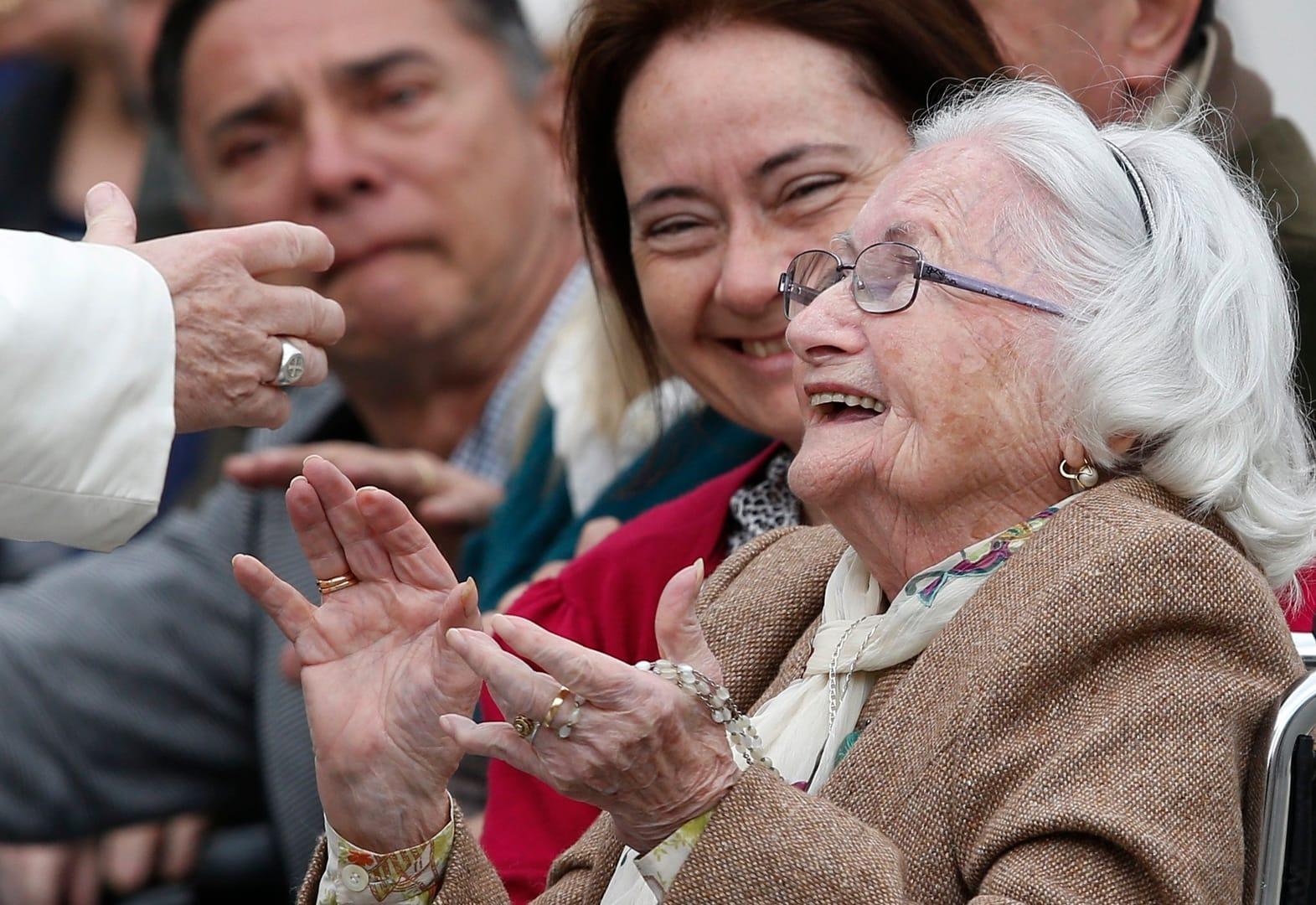ROME – One of Pope Francis’s favorite Catholic movements launched an initiative aimed at providing aid to the elderly in Italy, 19 million of whom live either alone or with an elderly spouse.
“Saving Our Elders” is a program by the Community of Sant’Egidio, presented on Tuesday, June 28, in their headquarters in Rome’s Trastevere neighborhood.
“We are here because a really hot summer is being anticipated,” said Marco Impagliazzo, president of the community. “In fact, we are already living it [Rome marked 103°F as he was speaking]. We know that for the elderly and for the most vulnerable communities, these heat waves are very dangerous.”
He presented data showing that the extremely high temperatures among those over 80 represents a mortality increase of 50 percent.
“There’s an urgent need for protective actions to be taken to aid one of the most vulnerable age groups in Italy, the elderly, who suffer a very concrete problem,” said Impagliazzo. “There are nine million Italian elderly who live on their own, and five million couples who only have one another to rely one, without the presence of their children or other caregivers in their homes.”
The Saving Our Elders campaign plans to mobilize thousands of volunteers, many of them in their 80s, too, to make sure that no one is alone during the summer.
The idea is simple: Volunteers sign up to the program, and commit to checking in with the people assigned to them, calling them regularly, visiting them when possible, and aiding in everyday tasks, such as grocery shopping or pharmacy runs.
“How many old people die alone, and days go by before anyone notices, because no one rang their bell, no one gave them a call or questioned why they stopped going to the grocery store, the pharmacy or to pick up their mail?” Impagliazzo asked.
The network for protecting those most vulnerable, he said, saves lives, and anyone can participate, even without the structured program: “Each one of us, with a small gesture like a call or a visit, can save lives. Reminding them of the need to drink water can prevent them from dehydrating.”
During the COVID-19 pandemic, the Italian community came together and mobilized to help those most vulnerable, Impagliazzo said, urging society to maintain the charitable attitude that flourished during the crisis.
“It is the humanity of our people, of our families, that can lead to change,” he said. “The model, the network of protection, exists. And it can be applied by everyone, even the elderly, who even though they have fewer possibilities to encounter those in their generation, can still make a phone call. In fact, even benefit from it, keeping each other company.”
At one point, Impagliazzo addressed the Italian public health system and the Assisted Living Residences (Rsa), social and health care facilities dedicated to non-self-sufficient elderly who require medical, nursing or rehabilitation care, general or specialized.
Saying that he was bringing up a “delicate and painful issue,” the head of Sant’Egidio said that there are many “illegal” residences, “makeshift places where you hear about mistreatment or extreme difficulty in being fed and other human rights abuses.”
“Institutionalization of the elderly,” he said, “is a factor in aggravating their health and their life in general. So we are very happy with the decisions that the Italian government is developing to move to forms of home care, with people no longer being institutionalized.”
There are some 240 Rsa in Italy, and Impagliazzo said that even among these official homes for the elderly there is an an “arbitrariness” by those who manage them, as they refuse to comply with the government’s mandate to allow family visits to those institutionalized.
Follow Inés San Martín on Twitter: @inesanma













